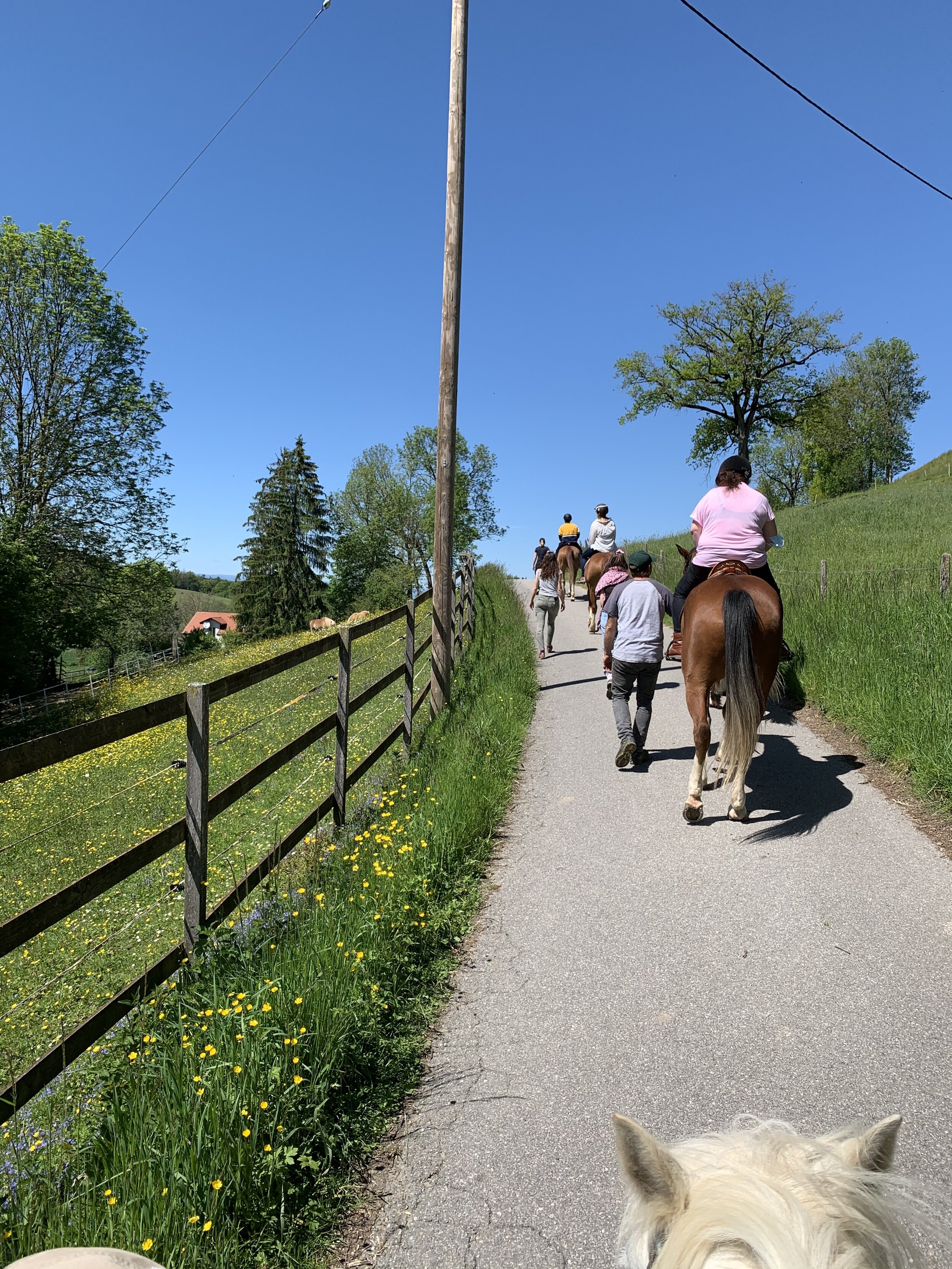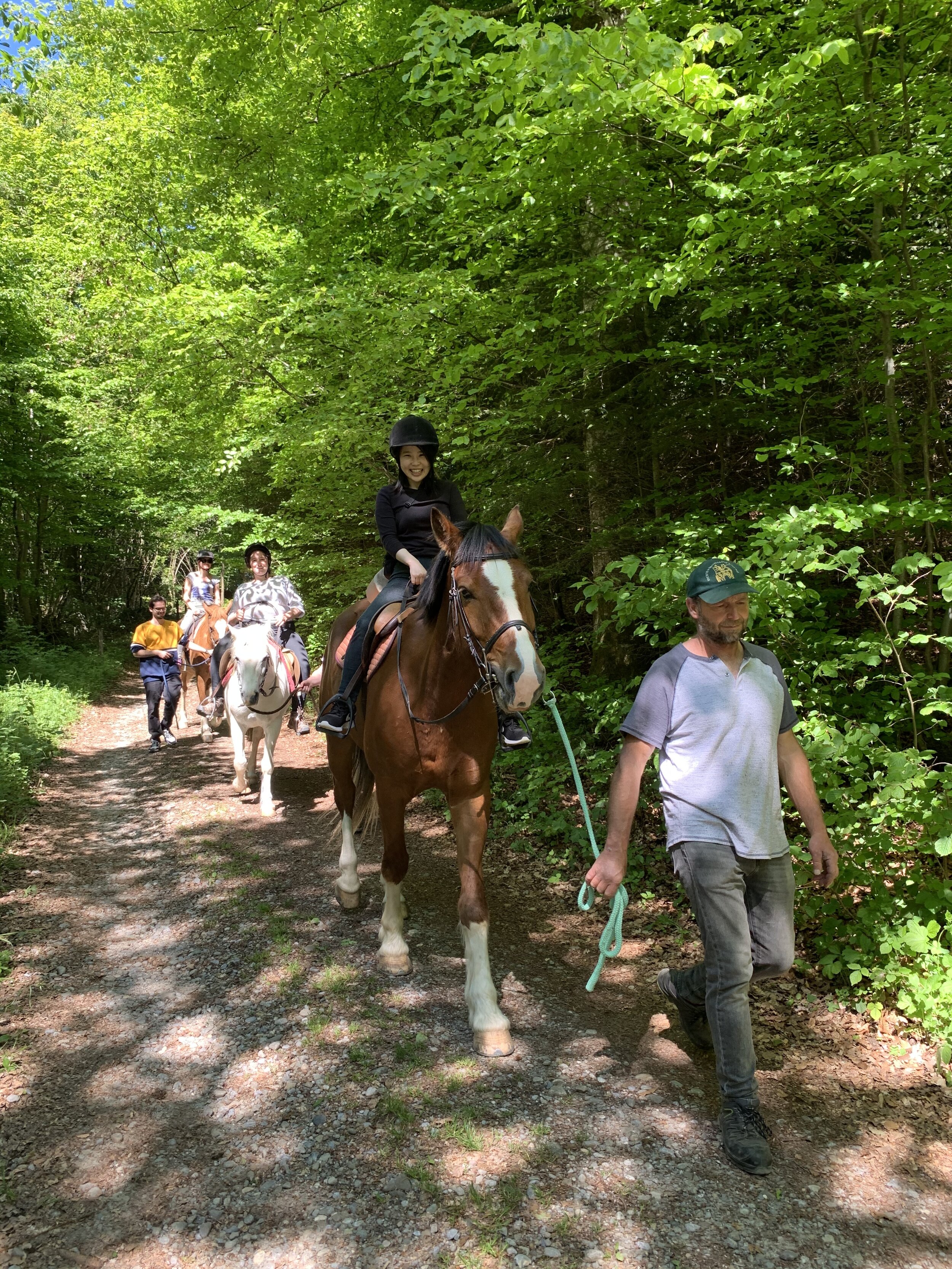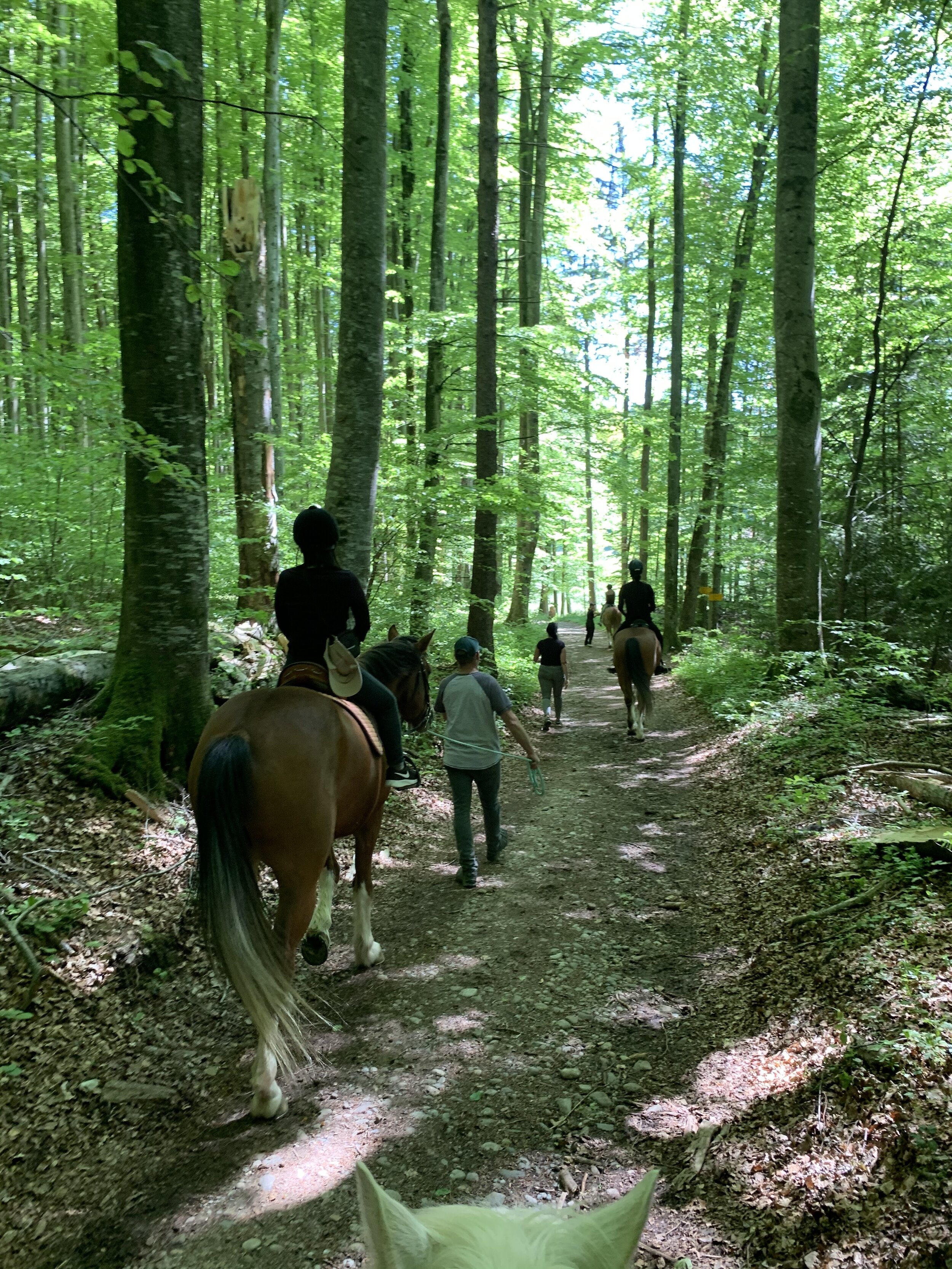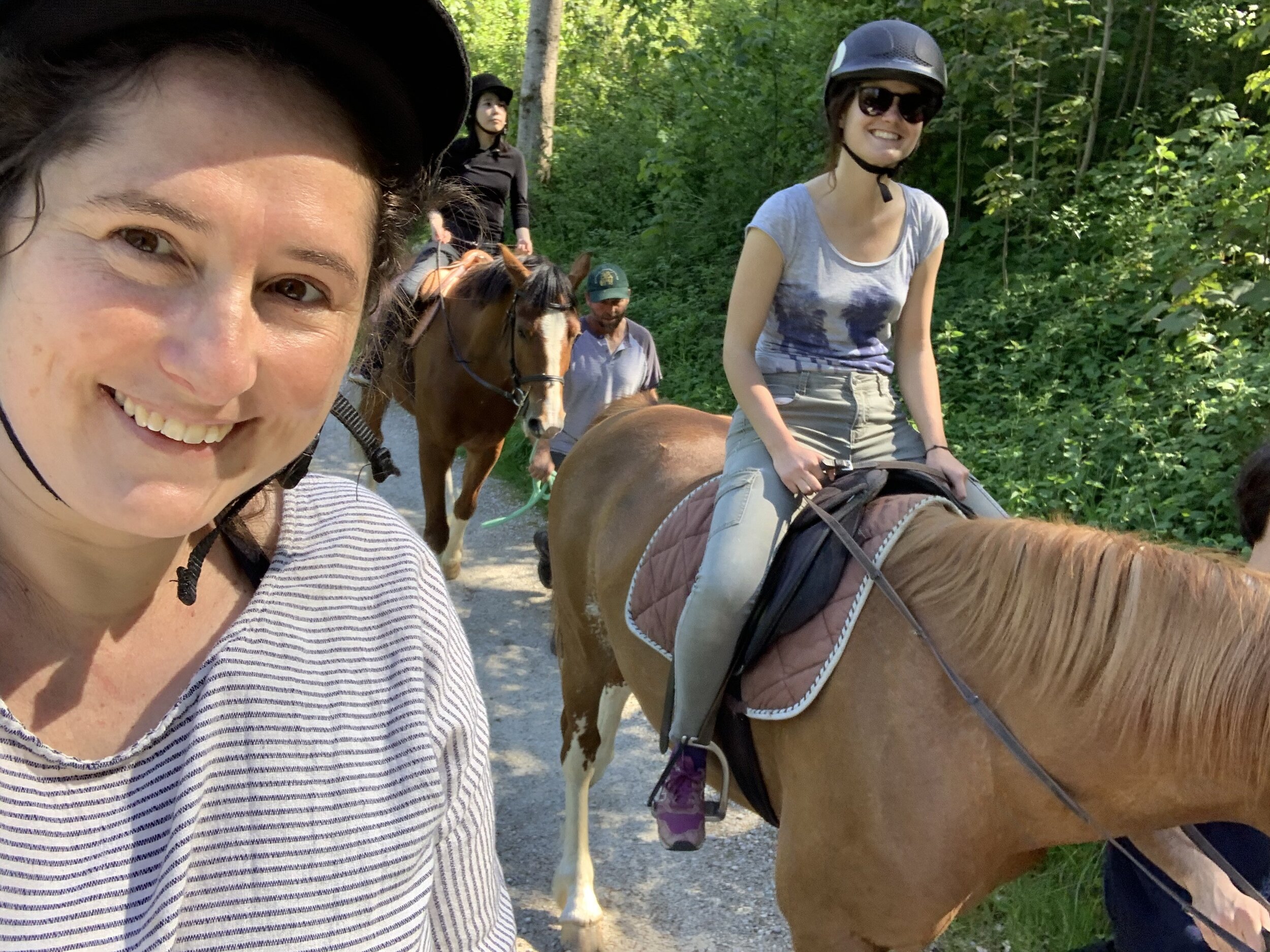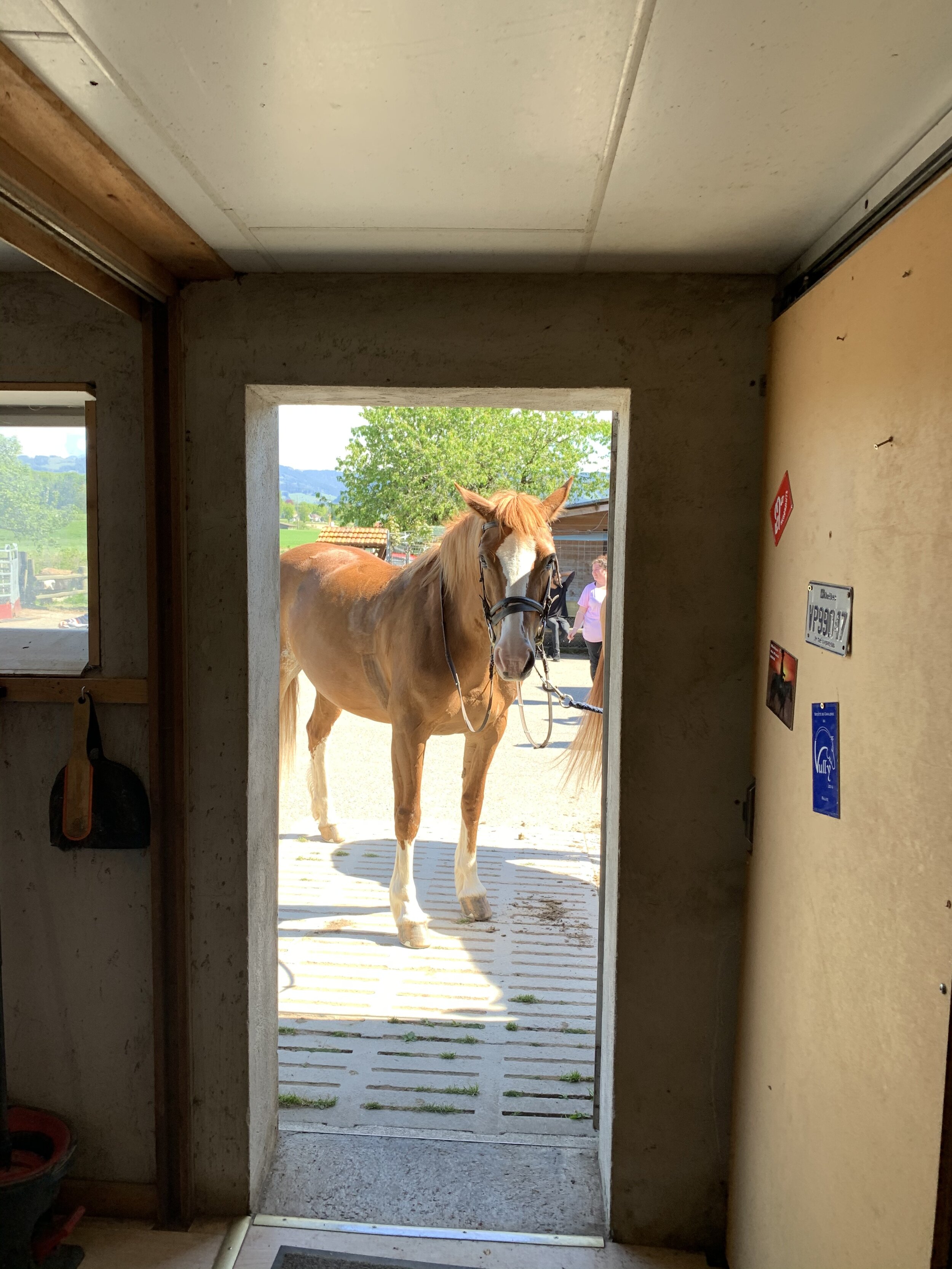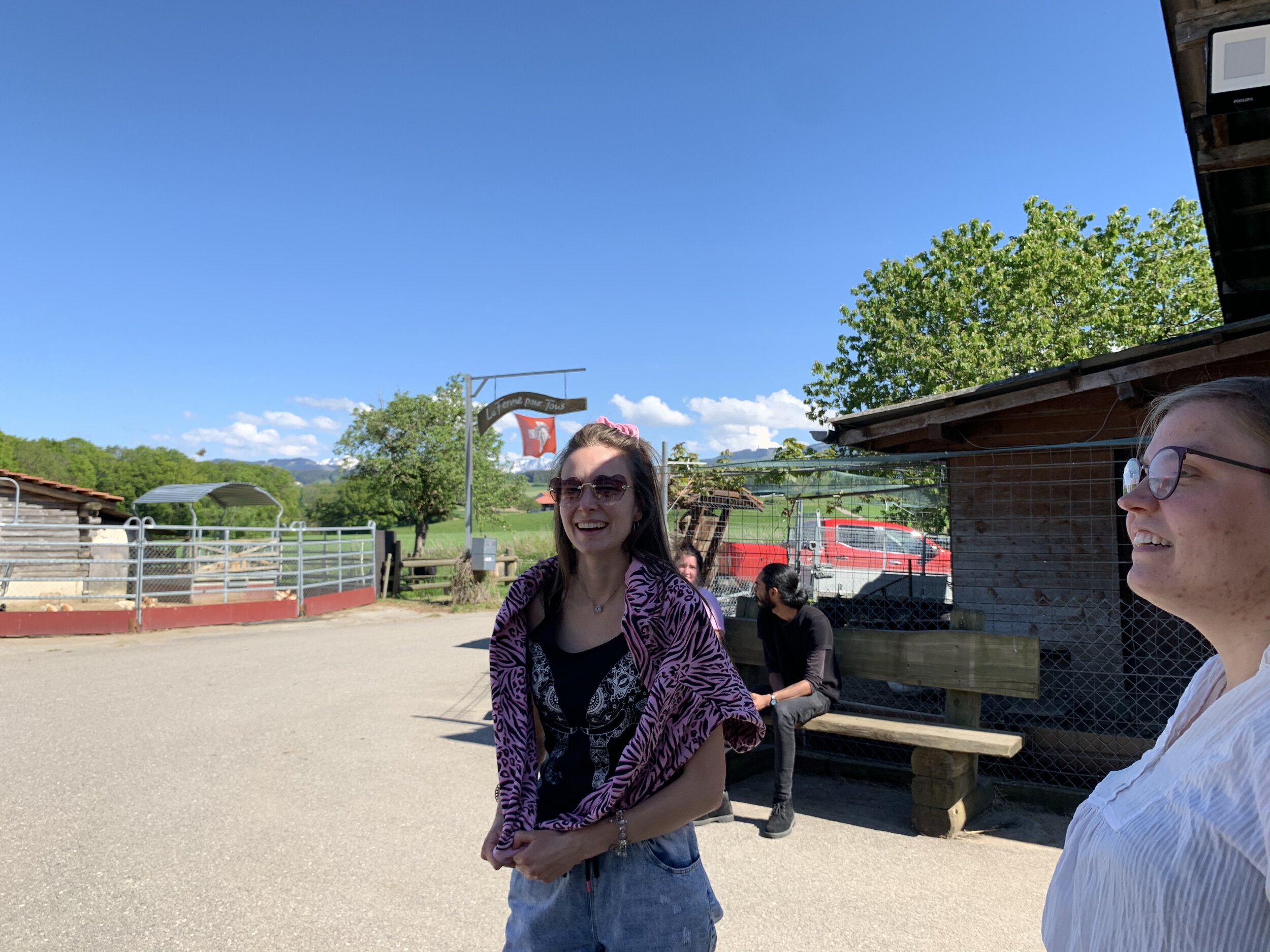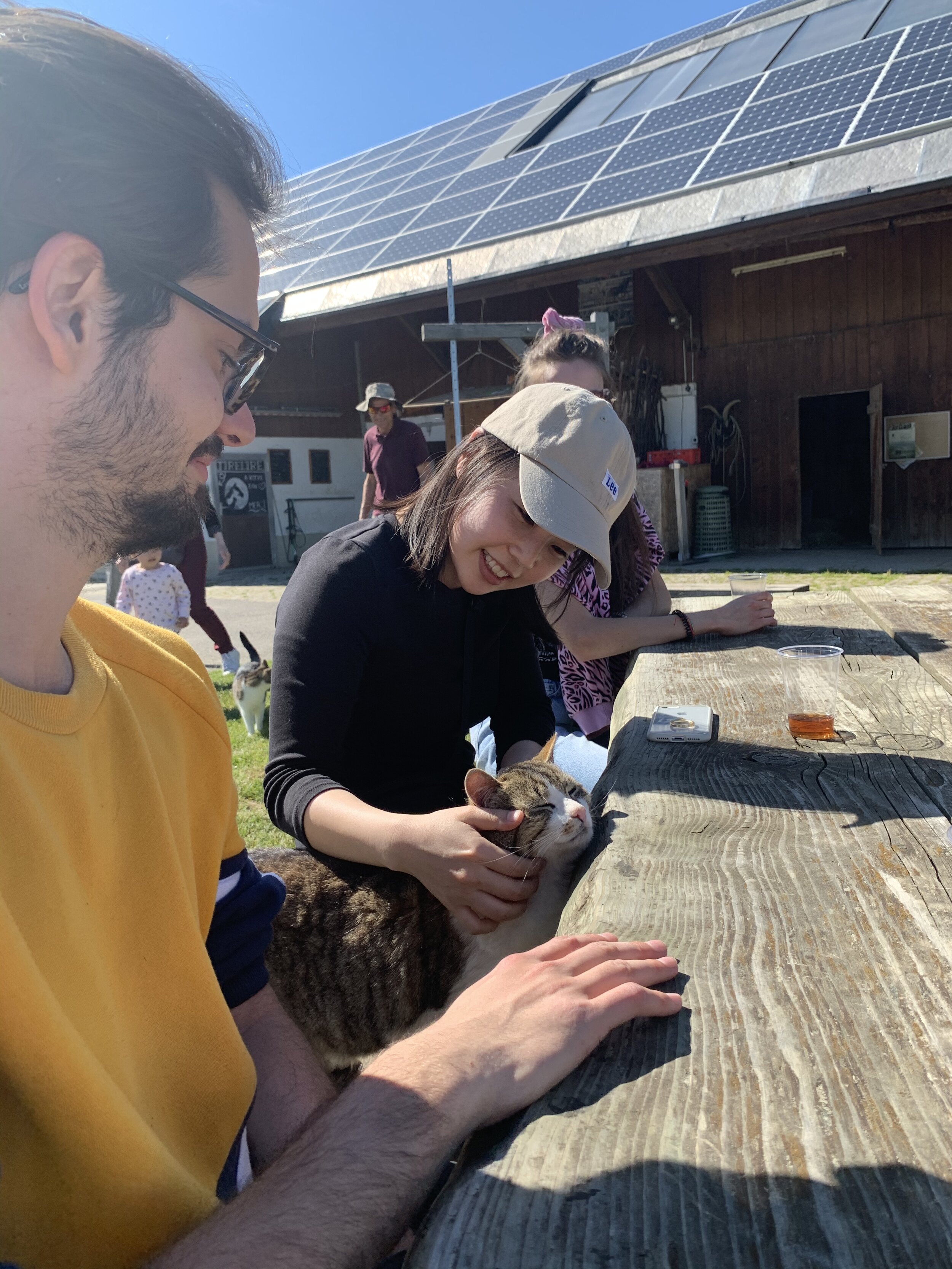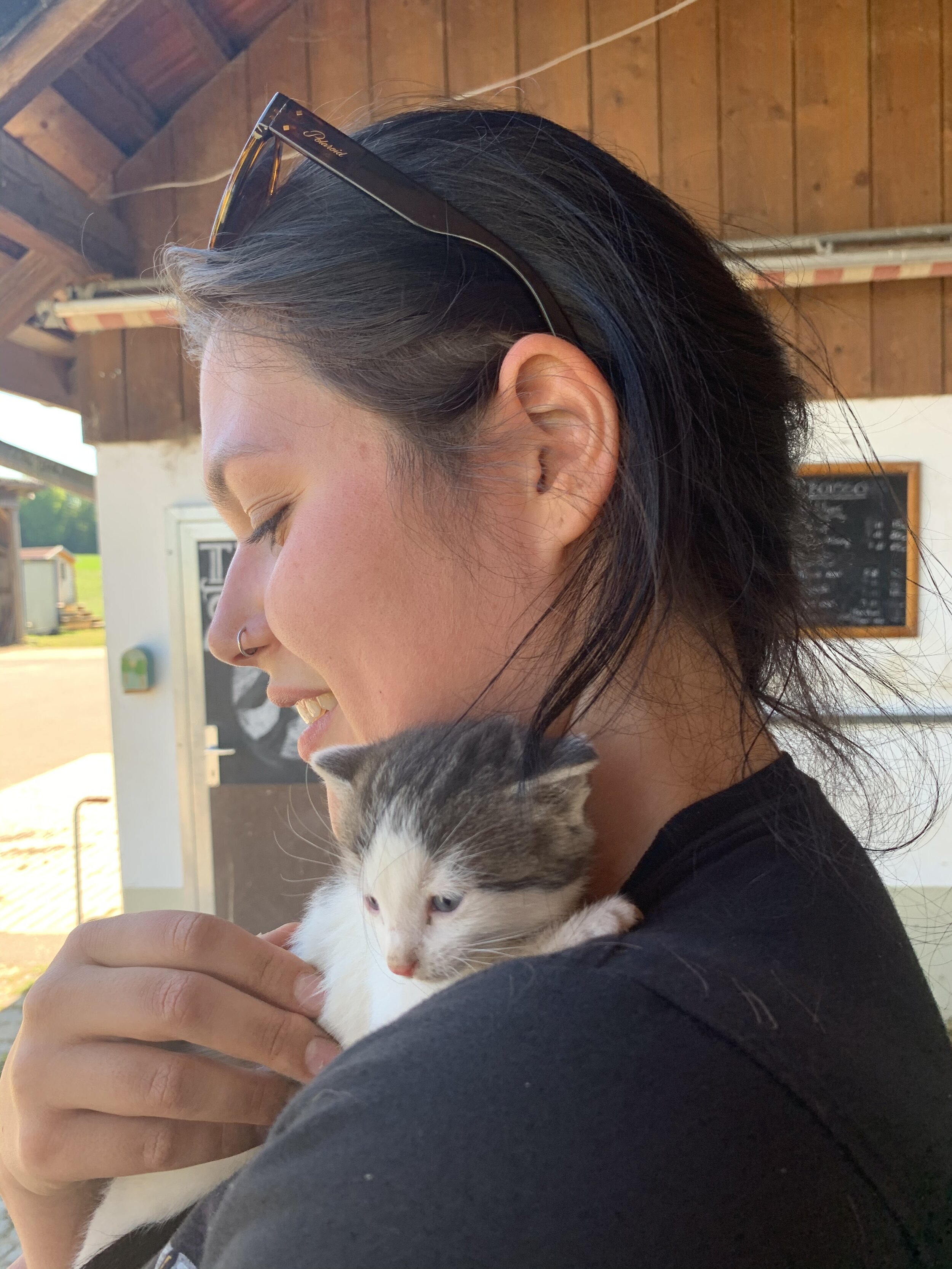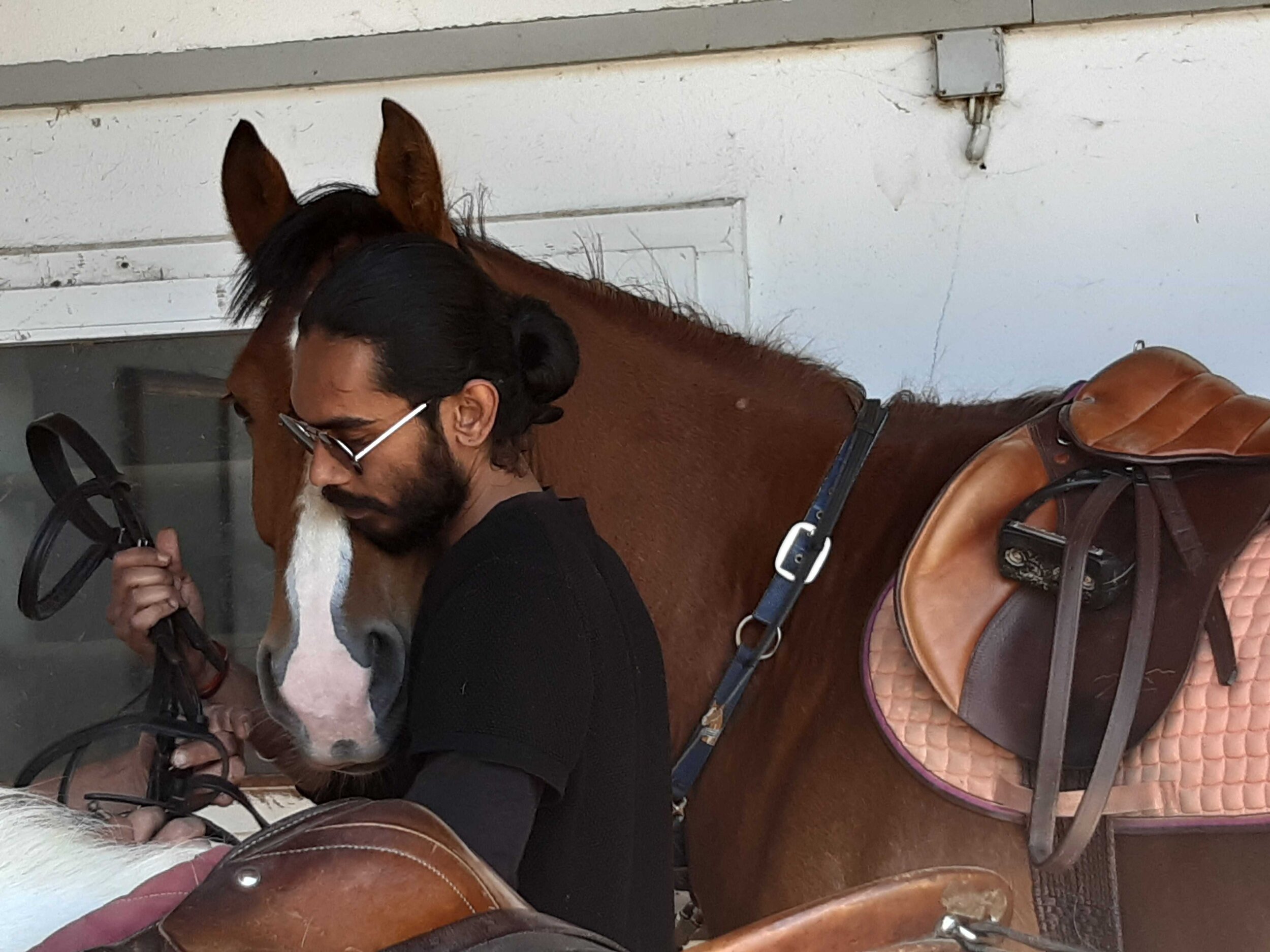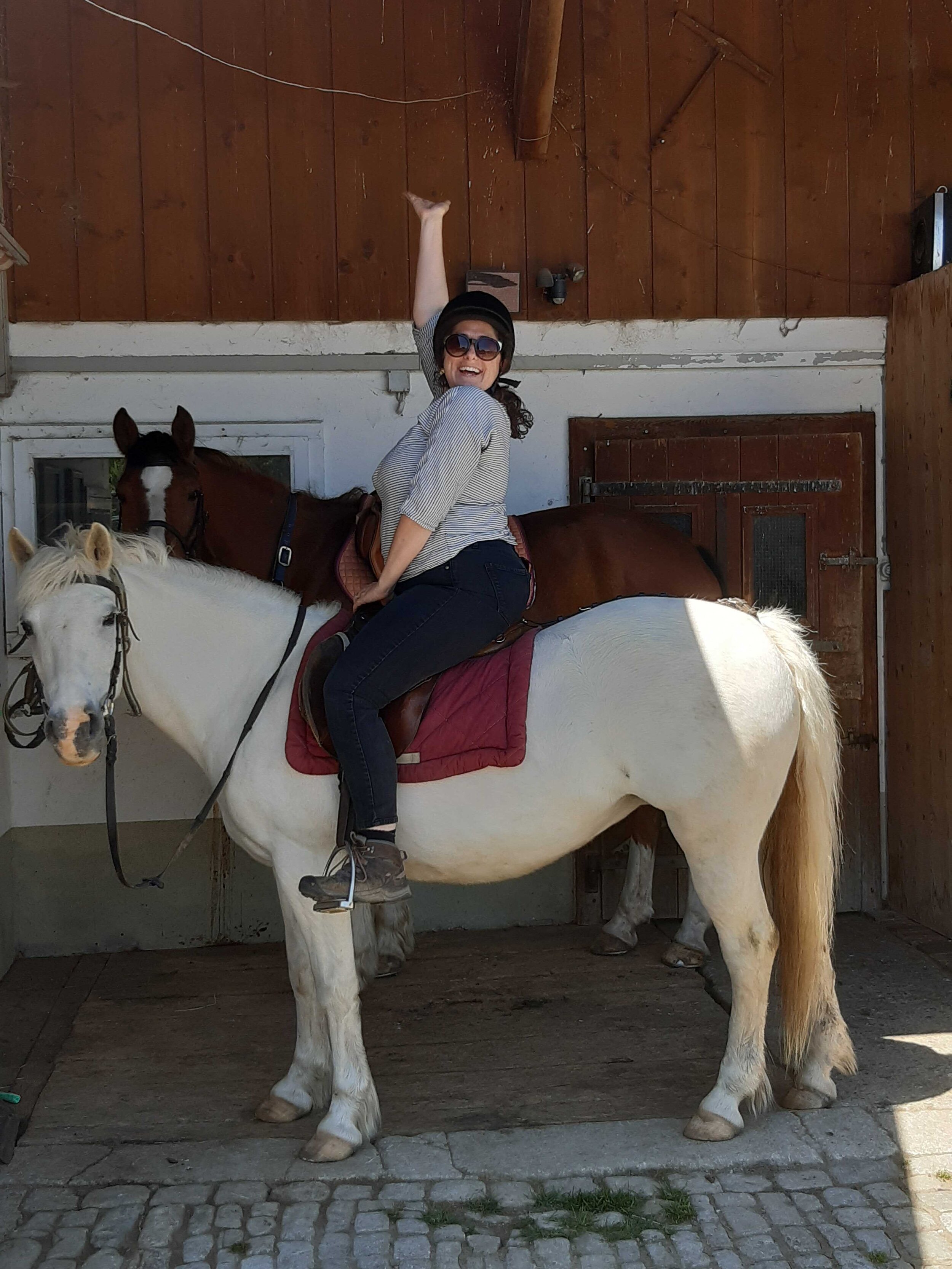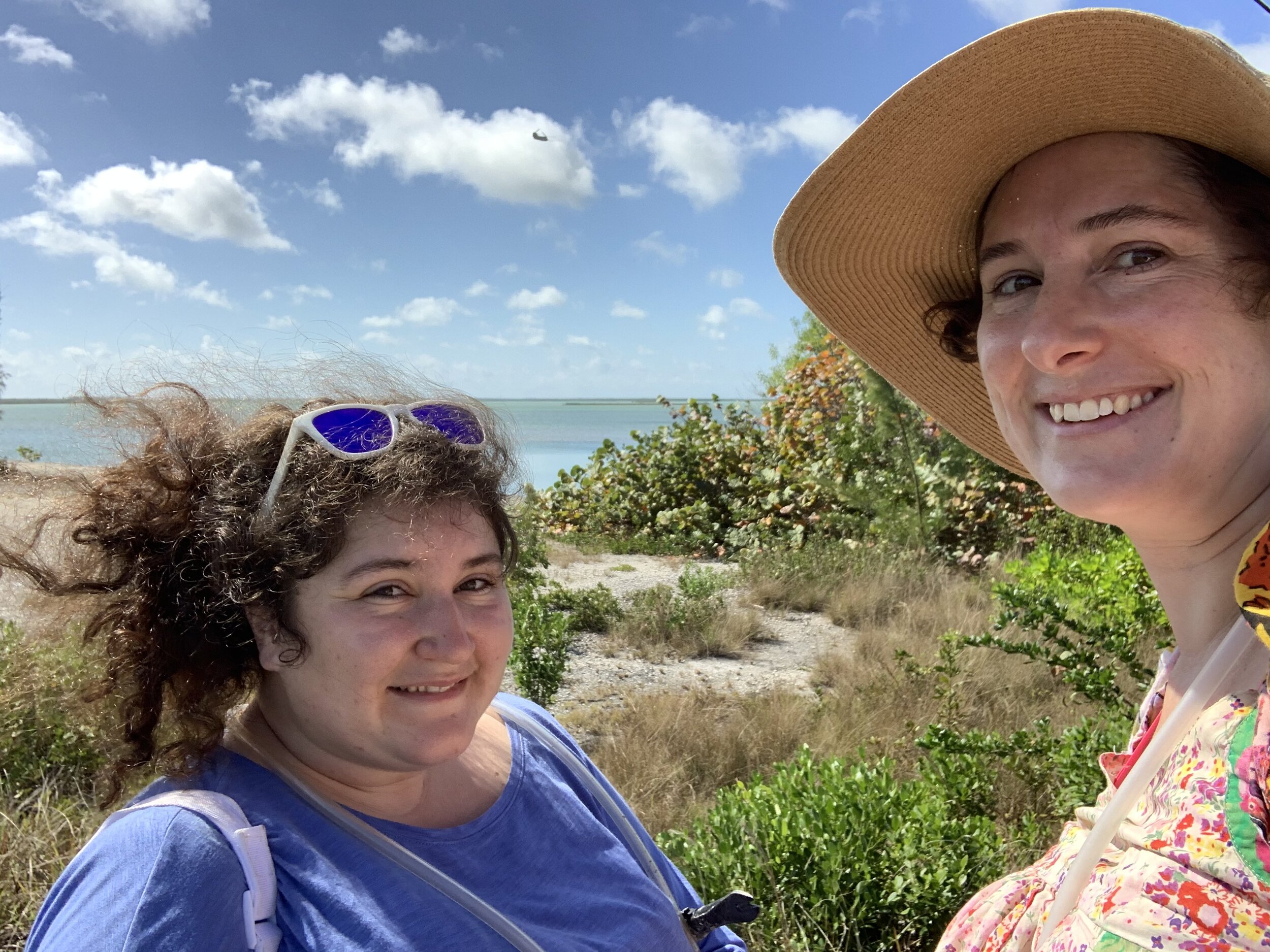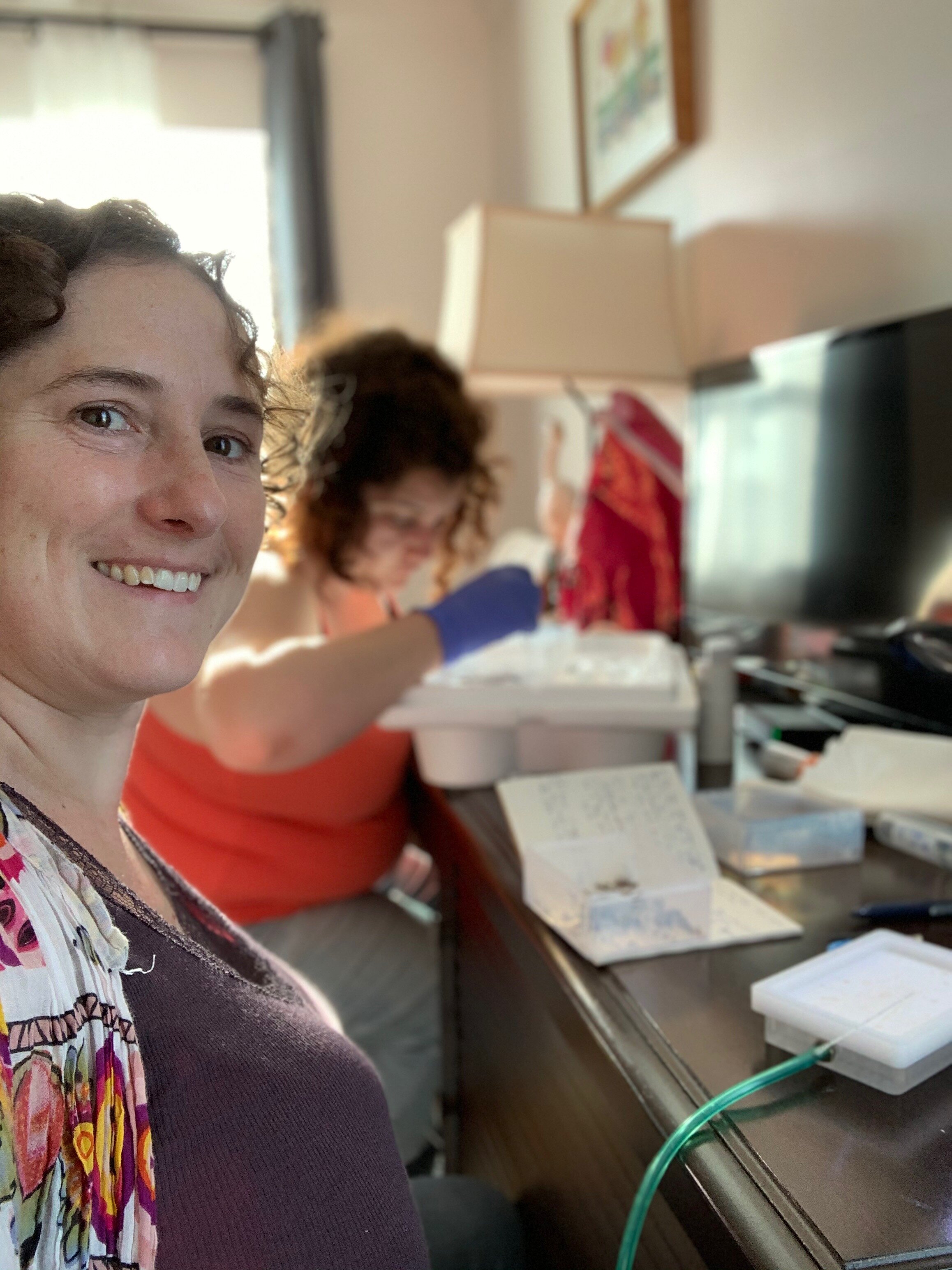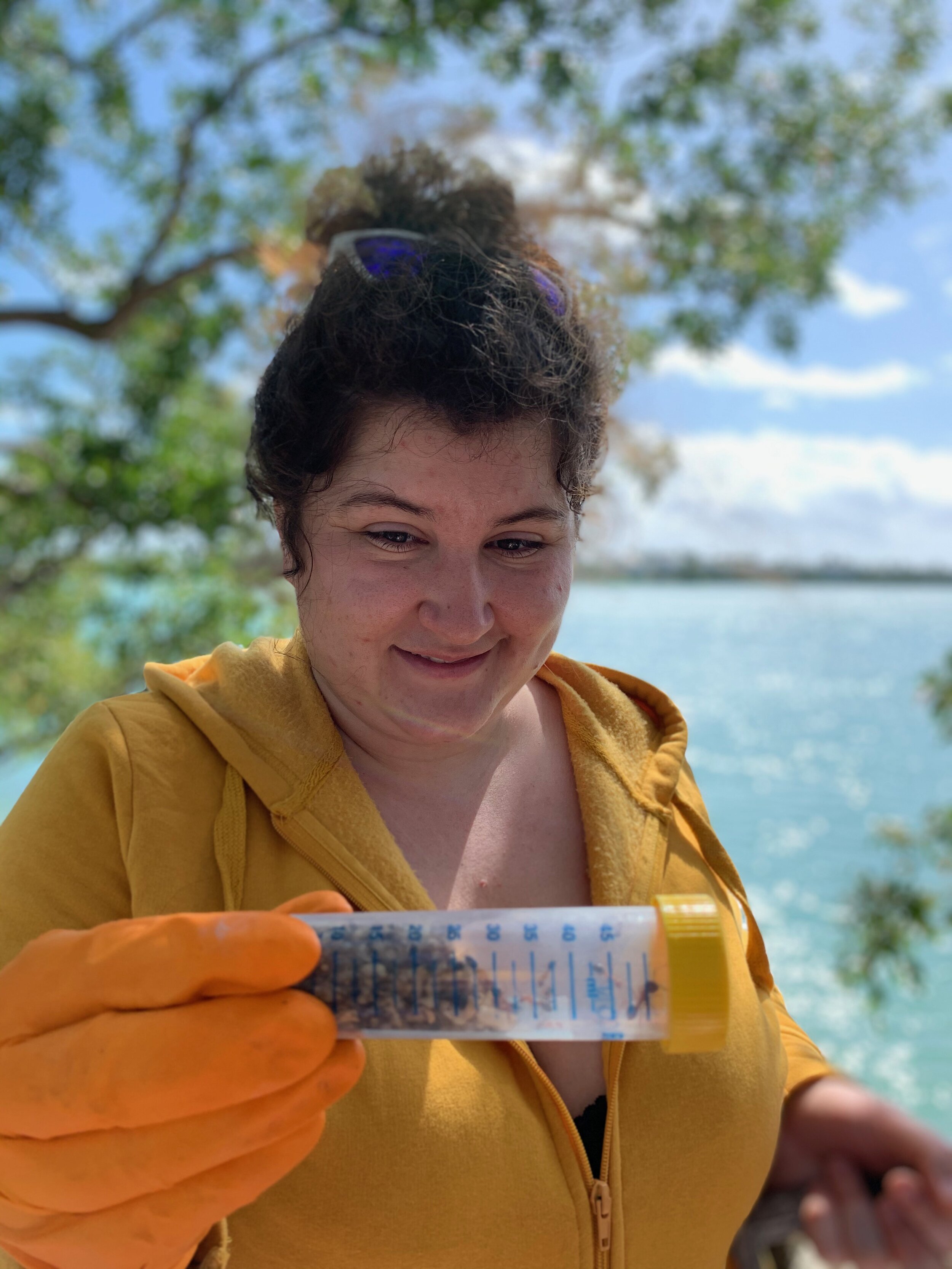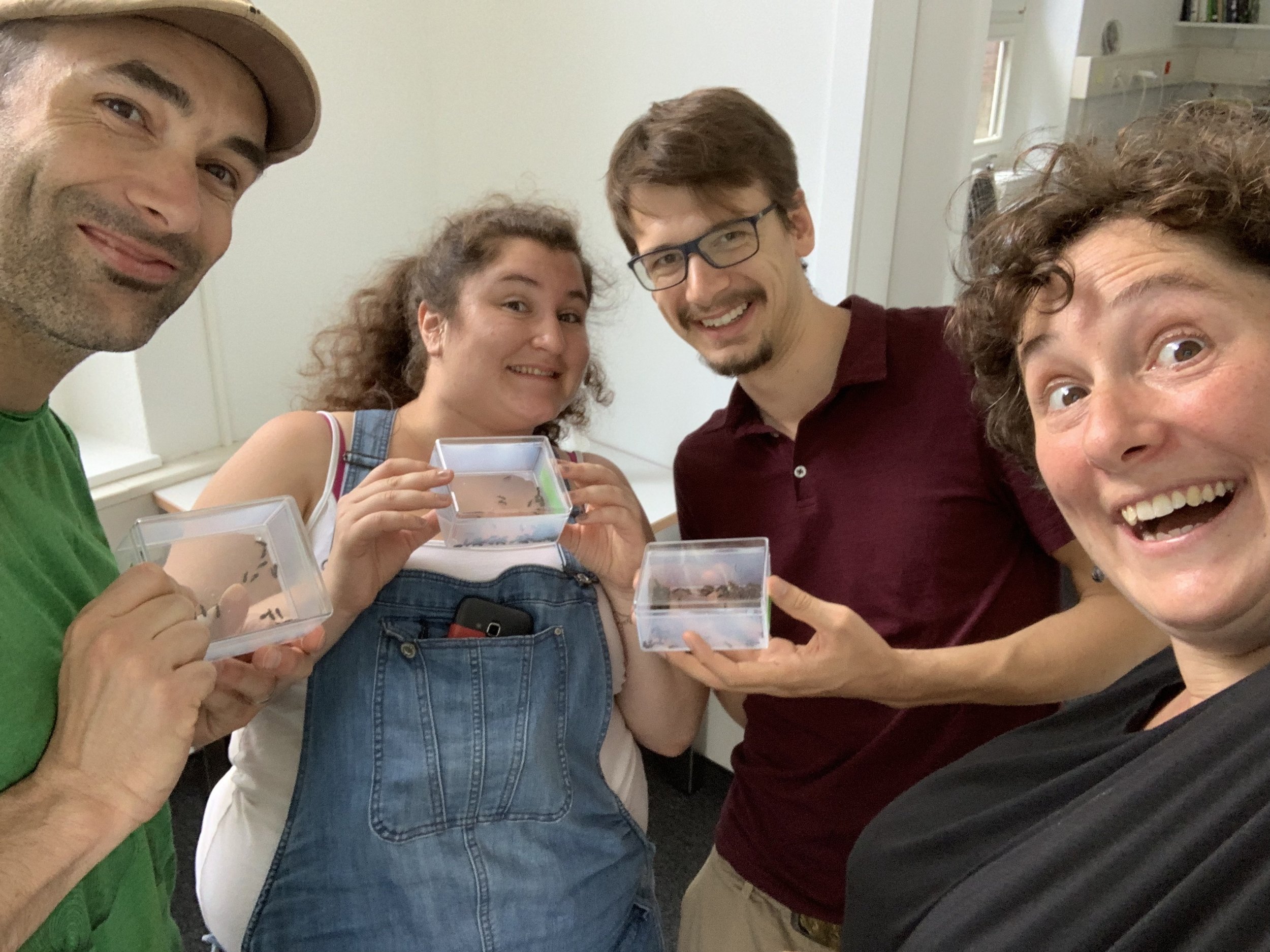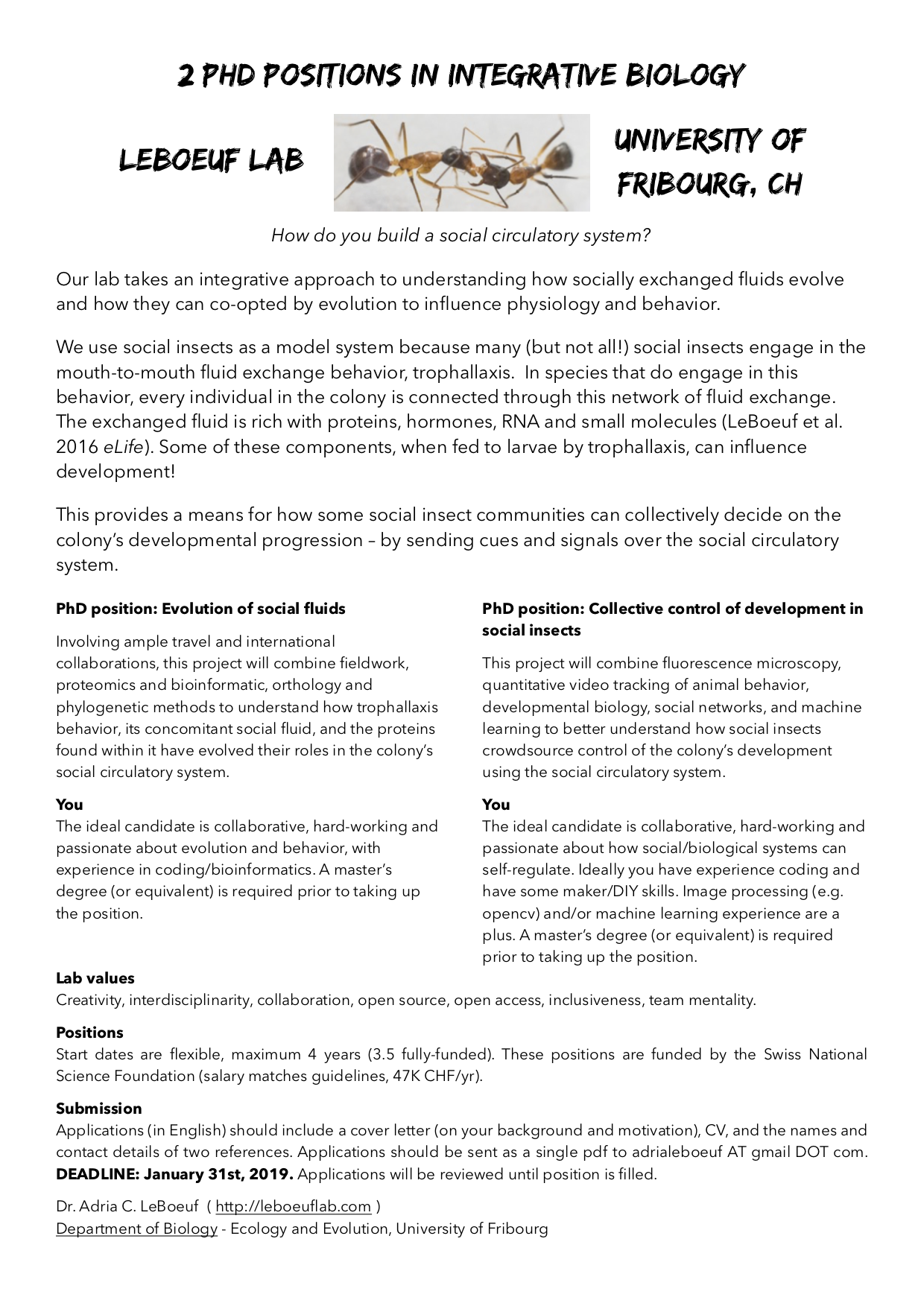Huge thanks to Romy for organizing this super fun outing!
In May we had the pleasure of welcoming not one, but two awesome postdocs, Haruna Fujioka from Japan and Matteo Negroni from France. Haruna came to us with a Japan Society for the Promotion of Science postdoctoral fellowship and she’s researching the evolution of trophallaxis along with eusociality. Matteo is working on unraveling distributed metabolism in ant colonies.
A preprint for the first research paper of the lab is now on bioRxiv and we are very excited about it.
Dynamic Variation in a Socially Exchanged Fluid Indicates a Role in the Regulation of Ant Colony Development and Maturation
SM Hakala, M-P Meurville, M Stumpe, AC LeBoeuf
https://doi.org/10.1101/2021.01.28.428590
Here’s a twitter thread on the story.
New preprint! In ant colonies, proteins circulated in the mouth-to-mouth food transfer network of #trophallaxis differentiate between colony life stages and castes @SanjaHakala @Marie_Meurville M Stumpe @adriaexists #socialfluids #ants #behavior #evolution
Young and mature colonies pass around different proteins: Proteins involved in direct carbohydrate processing are central for rapid growth in young colonies. Mature colonies circulate nutrient storage proteins needed to produce specialized workers and sexuals #castedetermination
Excitingly, anti-aging proteins (like superoxide dismutase) are circulated across colonies. If the colony distributes the costs of aging to the whole network, it would explain how ant queens escape the fecundity-longevity trade-off (!) #lifespan #lifehistory
Different ‘tissues’ have different molecular tasks: nurses have more signatures of extracellular vesicles and anti-aging proteins. Many of these socially-transmitted proteins could function as hormones that act over the superorganism to control its life cycle! #socialphysiology
We’re excited to discuss these topics further, and get feedback on the preprint, either here or at #cshlinsect virtual conference at the end of March, where @adriaexists will present the results!
Marie-Pierre and Adria wrote this giant review about trophallaxis, in what contexts it occurs, who does it and the big ‘why,’ why did it evolve. Please enjoy it, complete with the lovely figures (thanks Emile)!
There’s a lovely blog post interview with Marie-Pierre about the paper that Myrmecological News did.
Along with the paper we also put out a database that we’ll update about which species do and don’t engage in trophallaxis. Please write to us if you have any species to contribute!
We had a visit from Dumas Galvez from University of Panama and Smithsonian Tropical Research Institute and he spoke to us about his work on scorpions (!). Then for lab meeting, we were joined by Haruna Fujioka! Haruna will join us for a few years as a visiting postdoctoral researcher starting in April and we are really looking forward to her arrival.
A little gathering out in the botanical garden to celebrate submitting the first paper of the lab and three birthdays (Kader, Nicole and our neighbor PI Daniele Silvestro). The paper is Marie-Pierre’s grand review of trophallaxis. For such a critical behavior for social insects, and ants in particular, how has no one done a thorough review of our knowledge to date?? Well done MP!
Sanja joined the lab at the beginning of September. For next three years she will inspect the control of development and maturation of the sexual castes in ant colonies. She hopes to do tons of field work, learn bioinformatics and tell all about it to both the general public and the scientific community. She also comes to us on the wings of not one but two competitive postdoctoral fellowships! What a wizard.
Adria was already stateside when the Coronavirus-induced cancellations began. The American Physical Society meeting was cancelled <48 hours before the conference was meant to start. Luckily the organizers of the Physics of Social Behavior Focus Session, Orit Peleg of CU Boulder and Greg Stephens of OIST & VU Amsterdam), were quick to adapt and got the session to happen online swiftly.
You can find the entire session and all of the excellent speakers here. Adria was meant to close the session with her invited talk, so you find her talk at the end.
Adria was also meant to speak at ISOT (International Symposium for Olfaction and Taste) in Portland in June. That conference has also moved online and will be postponed til August 3-7!
Adria was a panelist at the Swiss Academies’ Science at Noon event on women, science and the future of work. This particular Science at Noon was meant to take place in connection with international women’s day in March, but then, #Covid struck.
The event got postponed and was held online. You can find a nice summary/interview here.
Marie-Pierre and Adria had a great trip visiting the ants in the wild just before Covid struck.
In spite of Covid, Adria spoke at the virtual American Physical Society March Meeting on March 2, 2020. The nice thing about the meeting going virtual is that you can watch it here:
The American Physical Society meeting was cancelled due to COVID19 and consequently the meeting went online. Here is Adria LeBoeuf of University of Fribourg ...
Join us for the International Day of Women in Science! I’ll be speaking about ants and social fluids at ONO in Bern (Kramgasse 6).
Check out Adria’s fun new blog post for Myrmecology News’ Blog.
The department made a nice video and Adria is in it! Look for the ants and Adria around 1:20!
The lab is growing! We welcome Amritansh Vats, a PhD student, and Nicole Andreoli, a Masters student, to the social fluids lab. Amritansh comes to social insects from physics and he will focus on the social control of larval development. Nicole will focus on ant gustatory perception of trophallactic fluid components.
Welcome to PhD student Amritansh Vats!
Welcome to Masters student Nicole Andreoli!
Working with ants is wonderful in many ways but there is one interesting drawback/advantage: you can’t breed most species in the lab. Instead we need to go out and collect newly-mated queens just after they do their mating flights. Ant mating flights are rare events! They typically happen only one or a few days per year in the summer, so we need to be ready to quickly spring into action. These mating flights are also very linked to local temperature and humidity conditions, so the date of the flight varies from year to year and for a given year, from neighborhood to neighborhood. Then, even further, whether you’ll find the species you are looking for depends on the local population: are they enough mature colonies?
Considering we just set up shop in Fribourg, we didn’t know where/when the local ants would be flying, but we knew we wanted to collect some Lasius niger when they flew in Fribourg.
Well, yesterday was the day! The Lasius niger were flying just outside the door of the lab. It doesn’t get any more convenient than that! We had a guest visiting who went outside for a think and he popped his head in, “Is this a queen of the species you are looking for?” Yep! And as Marie-Pierre was putting the queen into a tube, he came back again, “I think I found another one…” And before you know it, we have 100+ queens ready to start their colonies.
The lab is getting started! We’ve moved into our new space and the first founding queens I brought to the lab are finally getting their first workers. We do have other more mature colonies, but these are special – the foundresses.
Otherwise, the comparative adventure of trophallactic fluid is beginning. Marie-Pierre has been contacting labs around the world to set up this exciting project to explore the evolution of this social fluid and the social circulatory system.
Things are moving and changing: Today was the first day of the Laboratory of Social Fluids aka the LeBoeuf Lab!
Our lab is still being renovated so we are staying in temporary offices for the time being. We are going through all of the typical things that happen when you start somewhere new…getting connected to networks, printers, getting to know new colleagues, etc…
Speaking of new colleagues, the lab welcomes new PhD student Marie-Pierre Meurville! Marie-Pierre comes to us from Christoph Dessimoz’ group in Lausanne and she’ll be studying the evolution of trophallactic fluid.
It is thanks to the Swiss National Science Foundation’s PRIMA grant to Dr. LeBoeuf that the Laboratory of Social Fluids exists.
On April 3rd there was a grand kick-off event for the PRIMA grant in Bern where PRIMA grantees got to meet each other and talk about the importance and complications of being women in science.
If you scroll down the page you can even find a photo of Adria asking an awkwardly pointed question to Matthias Egger (he answered with aplomb of course).
Please check out the PhD positions here!


